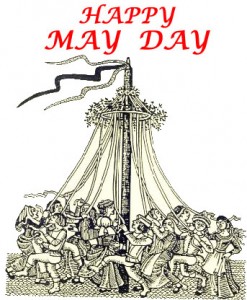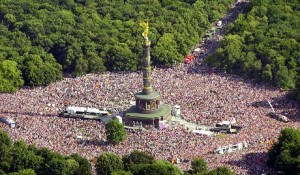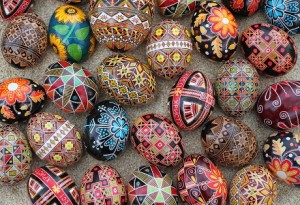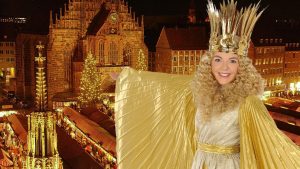May 1st is an international holiday in Germany known as May Day The first of May is Labor Day (Tag der Arbeit). The International Workers' Congress in Paris designated May Day as a public holiday in 1889, and in 1919 the National Assembly in Weimar declared it a public holiday in Germany. It is observed by holding meetings, marches and giving … [Read more...]
Valentine’s Day in Germany – Valentinstag
February 14th is Valentine's Day, and though celebrating Valentine’s Day has only become popular within the last few decades in Germany, there are several traditions Germans have taken on wholeheartedly. This includes giving cards, sweet treats and flowers to their loved ones on this special day. As the celebration of St. Valentine’s Day is quite … [Read more...]
Love at First … Site?
St. Valentine's Day is approaching.. Holiday's history and recipes -- for you and your sweetheart! "Love is the ultimate outlaw. It just won't adhere to any rules. The most any of us can do is sign on as its accomplice." -- Tom Robbins, Still Life With Woodpecker St. Valentine's Day (February 14) is the most romantic day of the whole year, the … [Read more...]
Love Republic Dos and Don’ts
Observe the simple rules and spread the message of Peace, Love, Unity and Respect Now that Loveparade has become a titanic (no allegory intended!) event attracting around 1.5 million visitors, it is very important to mind some rules of behavior in order not to turn a smiling, laughing mega-party into a hyperventilated, dehydrated and just plain … [Read more...]
Join the Love Republic!
Loveparade'2001 will be different from the previous eleven Parades because it won't take place on the second Saturday of July as it used to be. According to the local authorities' statement made in the beginning of April, July 14 has already been reserved by the Greens since September'2000 for a meeting. There is an opinion that the Greens' … [Read more...]
German-American Day: Tercentenary History of Friendship
October 6 is a German-American Day. In 2015 Americans of German descent celebrate the 332th anniversary of their ancestors' arrival in Philadelphia Harbor. Back in 1683 a group of immigrants from Krefeld couldn't know that they would be followed by several millions of Germans who would afterwards give rise to the largest ethnic group in America. … [Read more...]
Easter Eggs: Traditions and Recipes
Easter Eggs Traditions from Germany It is really impossible to imagine Easter without such an attribute as colored eggs. This is a very old tradition dating back to the 16th century to exchange colored eggs as Easter presents. Later, it became a custom for young people who were in love with each other, to give the decorated eggs to their … [Read more...]
German Easter traditions
Germany is home to some of the most charming and meaningful Easter traditions in Europe. With roots that stretch deep into both Christian beliefs and pre-Christian customs, German Easter traditions blend spirituality, folklore, and springtime celebration in ways that are both time-honored and joyful. Whether you're witnessing an Osterfeuer (Easter … [Read more...]
German Easter Bunny Recipes
Some last-minute recipes of Easter bunny-shaped cakes and cookies Easter is not all about hard-boiled eggs. You cannot make it with egg salads only! Let's honor Easter rabbit - the one who hides Easter eggs - by putting him on the festive table. Easter Bunny Ingredients: 1 kg flour 1 tsp salt 160 g soft butter 600 ml room-warm milk 1 tbsp … [Read more...]
Christ Child – Christkind
In some parts of Germany, mainly the south east of the country, children write to the Christkind/Christkindl asking for presents. The letters to the Christkind are decorated with sugar glued to the envelope to make them sparkly and attractive to look at. Children leave the letters on the windowsill at the beginning of or during Advent. "Das … [Read more...]
- « Previous Page
- 1
- …
- 3
- 4
- 5
- 6
- 7
- 8
- Next Page »








